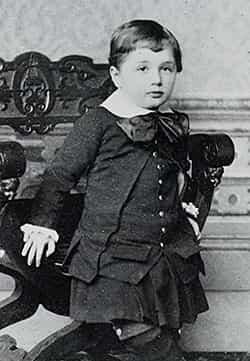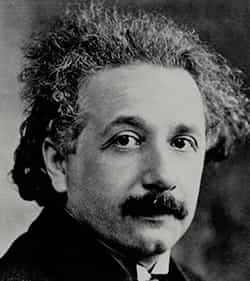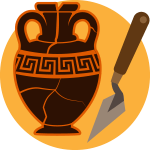Einstein's Compass
When Albert Einstein was five years old, he received a magnetic compass. Young Albert was mesmerized by the instrument, struck by curiosity at the invisible force that kept pulling the needle to the north. This simple gift sparked a lifelong curiosity in science and the hidden mysteries behind the way the world works. But Albert was more than curious—he was also determined and patient. When he had a question about the way something worked, he would tirelessly seek an answer. He learned about electricity and inventions from his uncle and his father. A college student living with the family shared books about math, physics, and geometry with Albert. These experiences laid the groundwork for one of the greatest minds of the 20th century.
Date of Birth: March 14, 1879
Date of Death: April 18, 1955
Hometown: Ulm, Germany; also lived in Switzerland and the United States
Position: physicist
Education: Federal Institute of Technology (Zurich), University of Zurich (Ph.D.)
Known for: theories of relativity; contributing more than any other scientist to our understanding of physical reality; social activism

Albert Einstein was also known as a pacifist. This means that he was:
against war
pro-war
an expert on the Pacific Ocean
Correct!
Albert Einstein was interested in more than just science. He was also very active politically. He was a humanitarian who spoke out against the use of violence to achieve any kind of political goal.

Einstein's General Theory of Relativity was the first major theory of gravity since:
Isaac Newton's theories of gravity
Kermit the Frog's theory of amphibians
Charles Darwin's theories of evolution
Correct!
Einstein's General Theory of Relativity was the first major theory of gravity since Isaac Newton's, more than 250 years earlier. Einstein's theory showed that the mass of an object warps the time and space around it, creating gravity.
Albert Einstein was against using thought experiments to solve scientific problems.
Fiction
Einstein was a master at thought experiments. In fact, his curiosity about what it would be like to ride on a beam of light led to many of his famous discoveries about light.
Peace cannot be kept by force. It can only be achieved by understanding.

Albert Einstein




 Biodiversity
Biodiversity
 Brain
Brain
 Genetics
Genetics
 Marine BiOLogy
Marine BiOLogy
 MicrobiOLogy
MicrobiOLogy
 PaleontOLogy
PaleontOLogy
 ZoOLogy
ZoOLogy
 AnthropOLogy
AnthropOLogy
 ArchaeOLogy
ArchaeOLogy
 Astronomy
Astronomy
 Climate Change
Climate Change
 Earth
Earth
 Physics
Physics
 Water
Water
